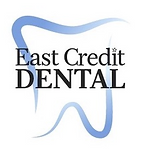Sedation Dentistry: How It Makes Appointments Easy
Sedation dentistry involves the use of medication that helps patients relax and feel comfortable during dental procedures. Dental sedation not only aids in creating a positive dental experience but also enables dental professionals to perform procedures more efficiently, promoting oral health.
Contact our Mississauga, ON, dentist today by calling (905) 567-1132 to learn more about sedation dentistry and to schedule your appointment.
Why Choose Sedation Dentistry?
The primary objective of sedation dentistry is to induce a relaxed state in the patient while keeping them conscious and able to respond to cues from the dentist. By enabling patients to undergo extensive dental procedures in a single visit, sedation dentistry results in fewer appointments. This calming effect happens through various medications that depress the central nervous system’s activity. The medication used for sedation can range from mild to moderate, depending on the patient’s needs and the complexity of the procedure.
What is Sedation Dentistry?
Sedation dentistry is a specialized approach to dental procedures that uses medication to help patients relax during their treatments. Often referred to as “sleep dentistry,” it’s important to note that most patients remain awake and responsive throughout the procedure. The primary goal is to alleviate anxiety and fear, making dental visits more comfortable and stress-free.
There are three main levels of sedation used in dental procedures: minimal sedation, moderate sedation, and deep sedation. Minimal sedation helps patients feel relaxed but fully awake, while moderate sedation may cause slurred speech and some memory loss of the procedure. Deep sedation, often grouped with general anesthesia, renders patients on the brink of consciousness, though they can still be awakened if necessary. Unlike general anesthesia, which makes a patient completely unconscious, sedation dentistry aims to keep patients calm and cooperative without putting them to sleep entirely.
Types of Sedation Dentistry
Sedation dentistry offers a spectrum of options to cater to different anxiety levels and patient preferences. Here are the most common types of sedation dentistry:
- Oral Sedation: Oral conscious sedation involves mild sedatives, such as oral medication. Patients remain awake and aware, experiencing reduced anxiety.
- Nitrous Oxide Sedation: Commonly referred to as “laughing gas,” nitrous oxide oral conscious sedation is inhaled through a mask placed over the nose. It induces relaxation and euphoria, and its effects wear off quickly after the procedure.
- IV Sedation: Administered intravenously, intravenous (IV) sedation allows for deep relaxation and comfort during procedures. It’s highly effective for patients with severe anxiety or for lengthy dental procedures. Healthcare providers can control the sedation level and monitor vital signs for safety. Patients may not remember much of the procedure afterward.
- General Anesthesia: Reserved for complex procedures, general anesthesia renders the patient completely unconscious.
- Local Anesthetics: While not a form of sedation, local anesthetics have pain-relieving properties important in dentistry. This technique involves injecting numbing medication into the treatment area, ensuring you remain pain-free throughout the procedure. It’s commonly used alongside minimal or moderate sedation to provide a well-rounded comfort experience.
The Sedation Dentistry Process
Health Assessment
Before administering sedation, Dr. Inigo will thoroughly evaluate your medical history, current health status, and any medications they may be taking. This assessment helps determine the most suitable sedation method and dosage. If your sedation appointment is on a different day, our dentist will provide pre-appointment instructions.
Administration: Intravenous IV Sedation
Once you’ve chosen the appropriate sedation, you’ll either begin your treatment or return to the dental office for your appointment. Your dentist will then administer the chosen method of sedation. However, if you choose oral conscious sedation, you’ll likely receive it in a pill or liquid form to take at home before arriving. After receiving oral conscious sedation, you will need a friend or family member to drive you home due to its temporary effects on memory and motor skills.
Monitoring
Regardless of the sedation method, our dentist and team will continuously monitor your vital signs, including blood pressure, heart rate, and oxygen levels, to provide for their safety throughout the procedure.
Procedure
Once you’re adequately sedated, the dentist can perform the necessary dental work. Various sedation options, including nitrous oxide, oral conscious sedation, and intravenous (IV) sedation, are used to cater to individual patient needs. The patient remains comfortable and relaxed during this time.
Recovery
After the procedure is complete, you’ll be monitored in a recovery area until you’re alert and stable enough to be discharged. The effects of sedation will gradually wear off, but patients may feel drowsy for some time afterward.
Follow-Up
We’ll provide post-sedation instructions, and you’ll need someone to accompany you home as you may still feel the effects of sedation.
In pediatric dentistry, oral conscious sedation, such as midazolam oral syrup, is often used to safely manage anxiety and comfort during dental procedures for children.
Dental Procedures That Can Be Performed Under Sedation
Sedation dentistry is versatile and can be applied to a wide range of dental procedures, from routine cleanings to more complex treatments. For patients with severe dental anxiety, sedation can make even a simple cleaning feel manageable. It’s also beneficial for those undergoing extensive dental procedures, such as full mouth reconstructions, dental implant placements, and periodontal surgeries.
Common procedures performed under sedation include fillings, crowns, root canals, extractions, and various types of oral surgery. Sedation is particularly advantageous for patients with a strong gag reflex or those who have difficulty sitting still for extended periods. By reducing anxiety and discomfort, sedation dentistry ensures that patients receive the necessary care without the associated stress.
Insurance Coverage for Sedation Dentistry
When considering sedation dentistry, it’s essential to understand how insurance coverage works. While many dental insurance plans cover the actual dental procedures, the costs associated with sedation may not always be included. However, if sedation is deemed a medical necessity due to a pre-existing medical condition or disability, some insurance plans may offer partial coverage.
To avoid unexpected expenses, it’s crucial to check with your insurance provider beforehand. They can provide detailed information on what aspects of sedation dentistry are covered under your plan. This proactive approach ensures that you are fully informed about potential out-of-pocket costs and can plan accordingly.
Choosing a Sedation Dentist
Selecting the right sedation dentist is a critical step in ensuring a safe and comfortable dental experience. Not all dental offices have the necessary training or experience to offer sedation dentistry effectively. Start by researching dentists who have completed the Commission on Dental Accreditation (CODA) program for deep sedation, as this certification indicates a high level of expertise.
When evaluating potential dentists, inquire about their experience with sedation dentistry, the types of sedation they offer, and their approach to patient care. Reading reviews and seeking referrals from friends or family members who have undergone sedation dentistry can also provide valuable insights. By choosing a qualified and compassionate sedation dentist, you can feel confident in receiving the best possible care tailored to your needs.
Why Choose Sedation Dentistry?
Dental sedation helps put patient’s minds at ease during many kinds of dental appointments. From routine dental checkups and cleanings to dental implant surgery or tooth extraction, sedation dentistry has many options that can reduce anxiety and other symptoms, such as:
- Dental Anxiety or Phobia: Dental sedation is particularly effective for individuals who experience intense fear or anxiety when visiting the dentist. It helps relax patients and makes them feel more at ease during procedures.
- Strong Gag Reflex: Some individuals have a hypersensitive gag reflex that can make dental procedures, especially those involving the back of the mouth, difficult. Sedation can help suppress the gag reflex, making procedures more manageable.
- Low Pain Tolerance: People with a low pain threshold might find dental procedures uncomfortable. Sedation can work in tandem with an anesthetic to enhance pain relief and minimize discomfort.
- Complex or Lengthy Procedures: Lengthy or complex dental procedures, such as oral surgeries, implant placements, or multiple extractions, can be physically and mentally taxing. Sedation means patients remain comfortable throughout.
- Inability to Sit Still: Some patients, including children or people with certain medical conditions, may struggle to sit still during a dental procedure. Sedation helps them stay calm and cooperative.
- Traumatic Dental Experiences: Individuals with a history of traumatic dental experiences might associate dental visits with distress. Sedation can help them overcome their fear.
- Sensitive Teeth or Gums: Patients with sensitive teeth or gums may experience discomfort during routine cleanings or procedures. Sedation can help manage their discomfort and make the experience more tolerable.
Frequently Asked Questions
Are there any side effects of sedation dentistry?
While side effects are rare, they can include grogginess, dizziness, nausea, or vomiting, particularly if deeper sedation is used. These side effects are typically short-lived and subside as the sedative wears off. Less commonly, some patients may experience headaches, dry mouth, or a mild feeling of disorientation. Your dentist will discuss any potential side effects with you before the procedure and will monitor you closely throughout the treatment to provide comfort and safety.
How long does the sedative effect last?
The duration of sedation varies depending on the type of sedative used. Nitrous oxide (laughing gas) wears off very quickly, typically within minutes of stopping the gas, allowing you to drive home safely after your appointment. Oral sedatives may take a few hours to fully wear off, and patients may feel groggy or drowsy during this time. IV sedation and general anesthesia can take several hours for the effects to completely wear off, and patients will need to be monitored until they are alert enough to go home. Your dentist will provide specific aftercare instructions based on the type of sedation used.
Is sedation dentistry safe?
Yes, when administered by trained professionals, sedation dentistry is considered very safe. Dentists use appropriate medications and closely monitor patients throughout the procedure to ensure their well-being. Before recommending sedation, your dentist will carefully evaluate your medical history, any current medications, and any other factors that may influence the sedation process. During the procedure, your vital signs, including heart rate, blood pressure, and oxygen levels, will be continuously monitored. The goal is to make sure you are comfortable and safe throughout your treatment.
Anxious at the Dentist? Sedation Can Help with Severe Dental Anxiety
Sedation dentistry has transformed how people approach dental care, offering a stress-free and comfortable experience for individuals who previously dreaded dental visits. If you’re someone who avoids the dentist due to fear or anxiety, sedation dentistry might be the solution that allows you to maintain a healthy, beautiful smile without worry.
Contact our Mississauga, ON, dental office today at (905) 567-1132 to schedule an appointment.


